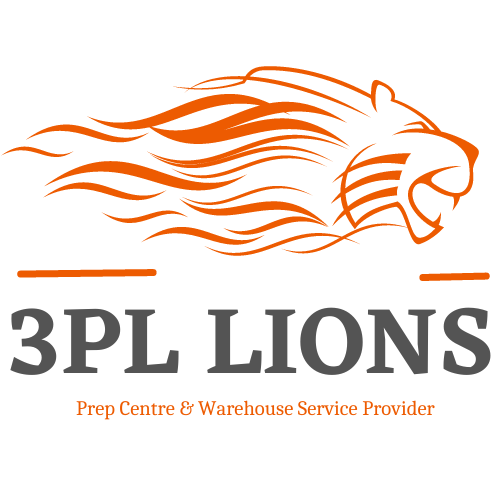A Comprehensive Guide to Amazon Fulfillment Alternatives
Amazon’s Fulfillment by Amazon (FBA) program offers independent entrepreneurs, businesses, and brands a powerful solution for handling product storage, packing, shipping, and other fulfillment needs. With the added perk of making products Prime-eligible, it’s a go-to choice for many sellers.
However, FBA isn’t always the perfect fit for every seller, and there are times when exploring alternatives becomes necessary. In this guide, we’ll dive into the drawbacks of FBA, the advantages of alternatives, and some of the best third-party fulfillment options to consider.
Challenges with Amazon FBA
Amazon’s FBA program has undergone multiple changes, including adjustments to storage limits, which can complicate inventory management for sellers. One notable change in 2023 introduced monthly FBA capacity limits, restricting sellers to store only three months’ worth of inventory based on their Inventory Performance Index (IPI) score.
While this offers some flexibility, it can pose challenges if sellers need to launch new products or stock additional inventory. To request extra space, sellers often face added costs through reservation fees.
Seasonal surcharges further complicate matters. For instance, from October 15, 2023, to January 14, 2024, Amazon imposed a Holiday Peak Fulfillment Fee. Such fee increases can significantly impact profit margins during peak selling seasons.
Why Explore Amazon Fulfillment Alternatives?
Sellers may seek third-party logistics (3PL) services for several reasons:
- Lower Fees: Third-party services often provide cost-effective storage, especially during high-demand seasons when Amazon’s fees spike.
- Customization: 3PLs allow for personalized packaging and branding, unlike the standard Amazon boxes.
- Better Support: Many 3PL providers offer dedicated account managers to streamline problem-solving.
- Improved Shipping Rates: Some 3PLs secure competitive shipping rates, which can boost your margins.
- Flexible Storage: Third-party options often allow unlimited storage without the penalties associated with excess inventory.
Amazon Fulfillment Alternatives
Here are some of the most effective alternatives to FBA for your fulfillment needs:
1. Fulfillment by Merchant (FBM)
FBM involves handling inventory storage and shipping directly from your location. By maintaining control over your inventory, you can save on fees and avoid FBA’s restrictions.
- Pros: Lower costs, full control over inventory, no seasonal fee hikes.
- Cons: Requires space and resources to manage shipping logistics.
- Tip: Create both FBA and FBM SKUs to ensure continuity if your FBA inventory runs out.
2. Seller-Fulfilled Prime (SFP)
SFP offers the Prime badge without storing inventory in Amazon’s warehouses. Sellers must pass a trial period to demonstrate their ability to meet Amazon’s high delivery standards.
- Pros: Prime badge boosts customer trust; no FBA fees.
- Cons: Requires fast, reliable shipping capabilities.
Third-Party Fulfillment Centers
For sellers without their own warehouses, third-party fulfillment services offer reliable storage and shipping solutions. Here are four standout options:
1. 3PLLIONS Fulfillment
3PLLIONS specializes in comprehensive third-party logistics services, providing tailored solutions for e-commerce businesses of all sizes. They cater to Amazon sellers, among other platforms, and offer services that enhance inventory management, order fulfillment, and overall supply chain efficiency.
Best For
- Amazon Fulfillment by Merchant (FBM) or Seller-Fulfilled Prime (SFP) orders.
- Multi-channel sellers across platforms like Shopify, Walmart, or eBay.
Key Benefits
- Cost-Effective Storage: Competitive rates for inventory storage, with no seasonal fee surges like Amazon FBA.
- Custom Branding: Support for personalized packaging to build a strong brand presence.
2. ShipBob
- Specialty: Multi-channel e-commerce fulfillment.
- Benefits: Seamless integration with Amazon, 2-day shipping options, dedicated support teams.
3. Red Stag Fulfillment
- Specialty: High-volume orders, FBM, and SFP.
- Benefits: 30-day free trial, flexible storage, 2-day delivery to 97% of U.S. addresses.
4. ShipMonk
- Specialty: Multi-channel sales, FBA prep services.
- Benefits: Custom packaging, account managers, cost-effective shipping for SFP orders.
Final Thoughts
Third-party fulfillment options can provide sellers with more flexibility, better control, and cost savings compared to FBA. Whether you opt for FBM, SFP, or a trusted 3PL provider, it’s crucial to evaluate your business’s specific needs and goals before making the switch.
For additional questions about FBA alternatives, drop your queries in the comments below!

